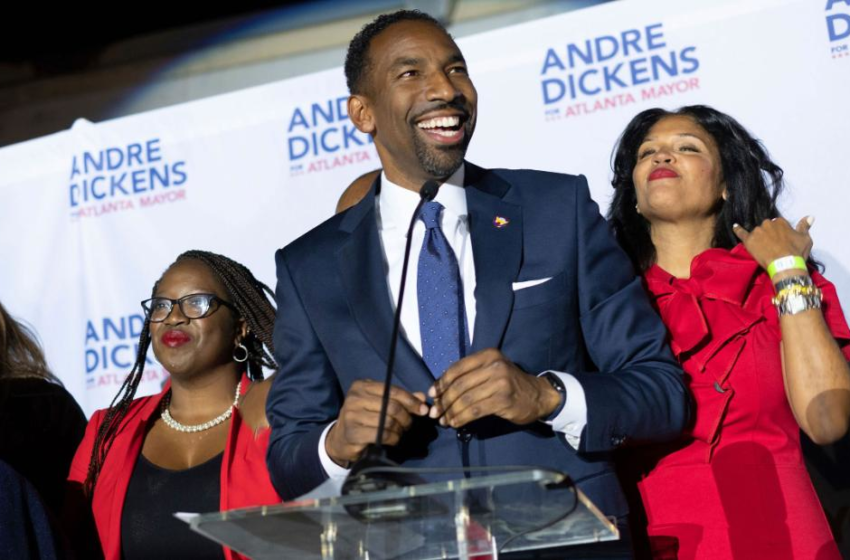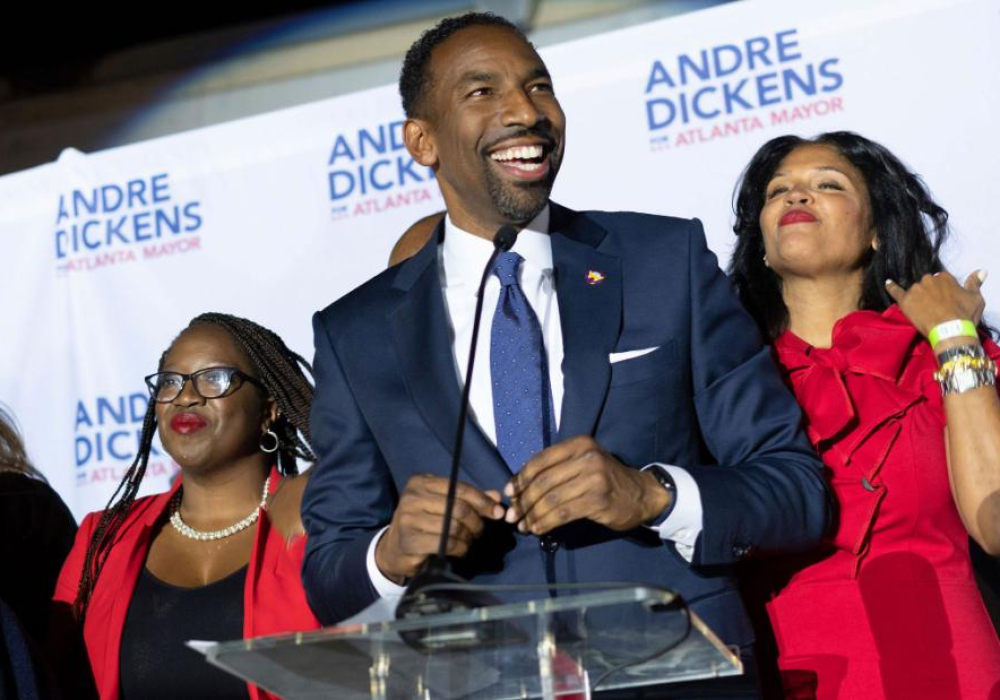Dickens and Moore had advanced to the runoff after no candidate in
a wide field received a majority of the vote earlier this month. The sitting mayor, Democrat Keisha Lance Bottoms, had announced in May she would not seek reelection.
Leading up to Tuesday, polls suggested the contest was close with a large swath of the electorate still undecided.
Dickens, a former businessman and nonprofit leader, has served on Atlanta’s City Council since 2013.
In a race that focused on a recent spike in violent crime as well as controversy over an effort by the residents of the wealthy community of Buckhead to break off from the capital and create their own city, Dickens — who previously served as the chair of the City Council’s Public Safety Committee — laid out
a public safety plan that prioritized community policing and boosting police resources.
Dickens’ proposal calls for increasing the police force by 250 officers during his first year in office while requiring new training for every police department employee on de-escalation techniques and racial sensitivity.
Ahead of the November 2 general election, shooting incidents had increased dramatically from 406 at that point in 2019 to 629 this year, according to an October 23 report from the Atlanta Police Department.
When Dickens takes office, he also faces concerns about low morale at the Atlanta Police Department and the
number of officers who departed the force since June 2020. Tensions were high after Bottoms
called for the firing of the officer who
shot Rayshard Brooks in the parking lot of a Wendy’s in June of 2020. Bottoms said she had asked the officer be let go from the force one day after the deadly shooting, the Atlanta Journal Constitution
reported at the time.
Though much of their rhetoric on the need for a safer Atlanta was similar, Dickens took a different approach than his opponent with regard to how he would handle policing in the city.
While Moore suggested removing Police Chief Rodney Bryant from his position, Dickens said he would not immediately replace Bryant and instead would give Bryant 100 days to improve the department.




